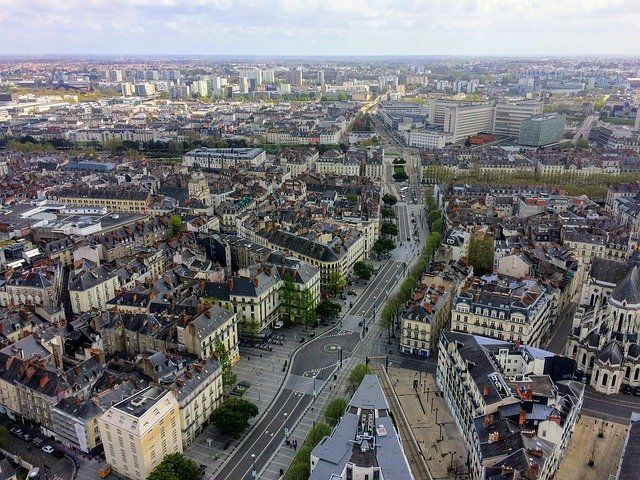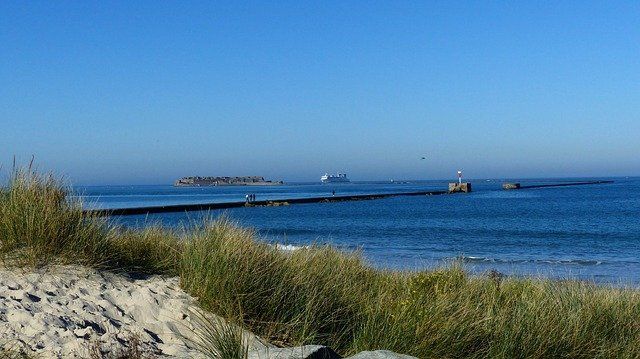
Very soon, on 18 June, France will be remembering the 60th anniversary of General de Gaulle’s famous wartime broadcast from London: ‘France has lost a battle, but France has not lost the war’.
His call was to French people everywhere to take up arms for the defence of the patrie. History records the outcome of those momentous years. But since then, while much progress has been made, many battles have been lost on the spiritual front. And others are still being lost. The war is far from won.
Catholic heartlands
This is especially true of the battleground around greater Nantes, the sixth largest city in France, with a population of around 600,000. Situated between the two Catholic heartlands of Brittany and the Vendée, it has long remained resistant to the gospel. This, despite the city having lent its name in 1598 to the Edict of Nantes, which granted limited freedom of worship to Protestants.
Added to this historic barrenness is the adverse influence of current New-Age thinking, which takes on board all things Celtic, including Celtic mythology. The bookshop scene indicates more than a large literate public. Alongside the three Catholic bookshops, several New-Age/occult bookshops compete with the well-stocked spiritualité shelves to be found in virtually every hypermarket and many ordinary bookshops.
A reader looking for something even vaguely Evangelical has the choice of travelling either 100 km to the north or a similar distance eastward!

Growth and ignorance
In north-west France, especially neighbouring Brittany, the past 20 years have seen the establishment of an Evangelical church (usually of the Baptist/Brethren variety) in virtually every sizeable town. Nevertheless, regrettably, there is still much ignorance among Christians of post-Reformation history in France.
First-generation converts find it difficult to realise that they are following in the footsteps of many others. John Calvin is not esteemed for his doctrine, or even as an eminent French Christian. The classic Reformed confessions are quite unknown.
The Nantes area has not seen the same level of church growth as the rest of northern France. Current estimates suggest that there is only one Protestant church (using this term in its broadest possible sense) for every 65,000 people.
However, while this remains one of the neediest areas in all of France, a number of new churches have been planted in recent years, including our own small Reformed and Presbyterian church. Sadly, the most striking recent growth in France has been on the charismatic wing.

There is no magic method for reclaiming ground for Christ anywhere, and certainly not in France. Over the years in Nantes we have tried ‘friendship evangelism’, regular leaflet distribution, door-to-door work, children’s clubs, English classes, topical conferences, musical evenings, as well, of course, as clear gospel preaching. Being situated relatively close to the university we have felt a special responsibility to reach some of the 40,000 students on the campus.
Progress, whether numerical or in terms of spiritual interest, has often been akin to three steps forward and two and a half backwards. Many people are always seeking, but never wanting to find. Others react against any idea of obligation or commitment. The thought of having to be regular in church attendance sits uneasily with French notions of individualism and freedom.
Patience
Despite the growth in Evangelical presence, the visitor to France looking for an Evangelical church will have great difficulty finding one. I often tell friends that after leaving the ferry at Cherbourg, our church is the first one on the right, 300 km further on!

This lack of visibility causes difficulties for the French themselves. Either they are unaware that there is a Protestant church in their town, or else the church’s very location, smallness and complete dissimilarity to what a ‘church’ should be, confirms their suspicion that it must be a sect.
Many discussions of missionary work today turn around the Parable of the Sower: the different soils, whether the conversions are real, lasting and God-induced, or merely emotional and man-produced. However, this parable begins with a sentence that is more than just introductory. A man going out to sow is, under God, the starting point of spiritual work everywhere.
France needs energetic, gifted, patient sowers. The book of Acts, and many contemporary examples, remind us that winning converts from the enemy’s grip usually comes about as (1) ordinary believers are motivated to witness and (2) preachers are empowered to present the glorious truth of our Lord Jesus Christ. And, of course, all gospel work must be steeped in another essential – prayer!








